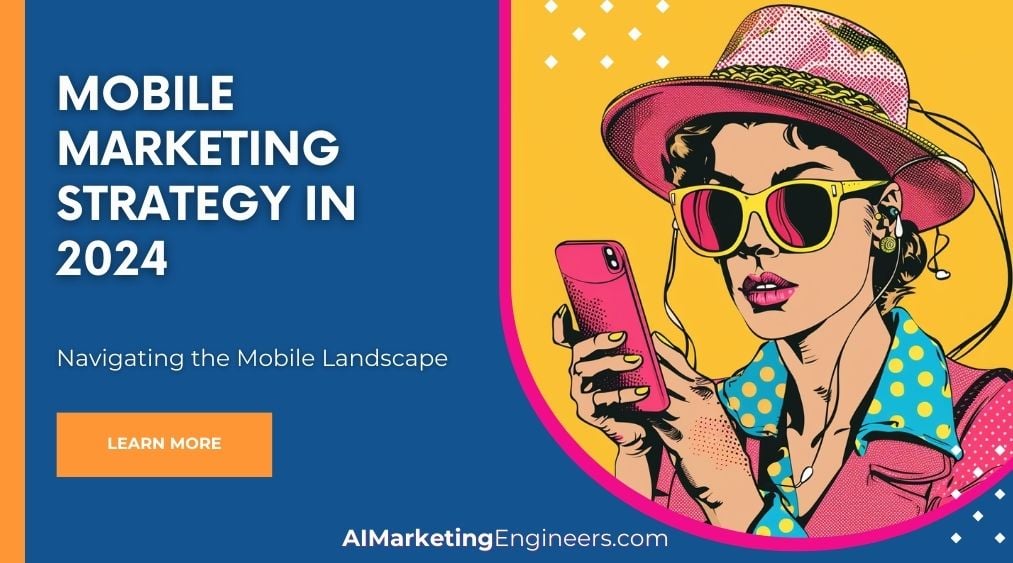Key Takeaways
✅ Case studies in marketing strategy provide valuable insights into successful tactics and approaches used by companies to achieve their marketing goals.
✅ Analyzing these case studies helps identify key factors that contribute to effective marketing, such as understanding the target audience, innovative campaign execution, and data-driven decision-making.
✅ Learning from real-world examples enables businesses to apply proven strategies to their own marketing efforts, leading to improved performance and competitive advantage.

Introduction
In the fast-paced world of business, where competition is fierce and consumer behavior is ever-evolving, a well-crafted marketing strategy is the beacon that guides companies toward their goals. Marketing strategies aren't just plans; they are the very essence of how businesses communicate, connect, and conquer in the market.
The Foundation of Marketing Strategy
Understanding the Strategic Landscape
Marketing strategy, in its essence, is the blueprint that outlines how a company aims to promote its products or services, connect with its target audience, and achieve its overarching business goals. It's the roadmap that navigates businesses through the intricate terrain of the market.
Diverse Strategies for Diverse Goals
Marketing strategies come in various forms, each tailored to address specific business objectives. Whether it's launching a new product, increasing brand awareness, expanding market reach, or fostering customer loyalty, there's a marketing strategy to steer the way.
Illuminating Case Studies: Real-World Success Stories
To truly grasp the power and potential of marketing strategies, we turn to real-world case studies that have left an indelible mark on the business landscape. These stories not only inspire but also offer valuable insights into the art and science of effective marketing.
Apple: The Cult of Innovation
Apple's marketing strategy is a testament to the allure of innovation and the power of brand storytelling. With sleek product launches, captivating commercials, and a cult-like following, Apple's marketing magic has made its mark on the world.
Coca-Cola: The Universal Taste of Happiness
Coca-Cola's timeless marketing strategy has transcended borders and generations. By tapping into the universal emotions of joy and togetherness, Coca-Cola has become more than a beverage; it's a symbol of happiness.
Nike: Empowering Athletes Worldwide
Nike's "Just Do It" campaign is more than a slogan; it's a rallying cry for athletes and dreamers worldwide. Through powerful storytelling, celebrity endorsements, and a commitment to empowering athletes, Nike's marketing strategy continues to inspire.
Airbnb: Creating Belonging Anywhere
Airbnb's disruptive marketing strategy redefined travel and hospitality. By focusing on the idea of "belonging anywhere," Airbnb connected travelers with unique experiences and hosts, transforming the way we explore the world.
Dove: Redefining Beauty Standards
Dove's "Real Beauty" campaign challenged conventional beauty standards and championed inclusivity. By promoting self-confidence and celebrating diversity, Dove's marketing strategy struck a chord with consumers worldwide.
Lessons Learned: What Makes These Strategies Shine
Authenticity and Storytelling
Authenticity is the cornerstone of compelling marketing strategies. Brands that stay true to their values and tell meaningful stories resonate deeply with consumers.
Understanding Consumer Emotions
Successful marketing strategies tap into the emotional core of consumers. By understanding their desires, fears, and aspirations, brands can create connections that transcend transactions.
Consistency and Adaptability
Consistency in messaging and branding is vital, but so is adaptability. Effective marketing strategies strike a balance between staying true to their core and adapting to evolving consumer trends.
Empowerment and Engagement
Empowering consumers and engaging them as part of the brand's journey fosters loyalty and advocacy. Marketing strategies that prioritize consumer involvement reap long-term rewards.
The Art and Science of Marketing Strategy
Marketing strategies are the compasses that guide businesses through the ever-changing landscape of commerce. Through a careful blend of authenticity, emotional resonance, adaptability, and consumer empowerment, these strategies can lead companies toward unprecedented success. As we delve into the intriguing case studies of Apple, Coca-Cola, Nike, Airbnb, and Dove, we uncover the art and science that make marketing strategy not just a plan, but a force that shapes the world of business.
Case Study 1: Apple's Simplicity and Revolution
When it comes to marketing strategies that have left an indelible mark on the world, Apple stands as a prime example. Apple's approach is characterized by simplicity, innovation, and the creation of a community of fervent believers. This strategy has propelled Apple to the pinnacle of success, making it one of the most valuable companies in the world.
The Power of Belief
Apple's marketing strategy is not just about selling products; it's about creating a revolution of people who believe in something. This "something" is the idea that technology should be simple, intuitive, and seamlessly integrated into our lives. Apple's products are not just tools; they are extensions of our identity.
Delivering on the Promise
Apple's marketing brilliance lies in its ability to deliver products that ride the wave of this belief. The unveiling of each new iPhone or MacBook is not just a product launch; it's a cultural event. Apple's marketing ensures that every product is seen as a game-changer, sparking excitement and anticipation.
Case Study 2: Coca-Cola's Global Brand Presence and Sustainability Efforts
Coca-Cola's marketing strategy is a testament to the brand's global resonance and adaptability. It encompasses a diverse product line, health-conscious offerings, and a commitment to sustainability. These elements have helped Coca-Cola maintain its status as one of the world's most recognized and valuable brands.

Diverse Product Line
Coca-Cola's marketing strategy is anchored in its diverse product line. Beyond the classic Coca-Cola beverage, the company offers a wide range of options, including sugar-free, low-calorie, and even sparkling water. This diversity caters to evolving consumer preferences.
Health-Conscious Offerings
In response to the growing demand for health-conscious options, Coca-Cola has embraced marketing strategies that promote lower-sugar and lower-calorie beverages. These efforts align with changing consumer perceptions of health and wellness.
Sustainability Initiatives
Coca-Cola's commitment to sustainability is a core component of its marketing strategy. The company actively engages in initiatives related to water stewardship, recycling, and reducing its environmental footprint. These efforts resonate with environmentally-conscious consumers.
Challenges and Opportunities
While Coca-Cola enjoys global brand recognition, it also faces challenges in an ever-changing global beverage market. The shift toward healthier beverages and the need to address environmental concerns pose challenges. However, these challenges also present opportunities for innovation and growth.
Case Study 3: Food & Beverage Digital Strategies
The food and beverage industry has witnessed a digital transformation in recent years, with brands harnessing a multitude of digital strategies to connect with consumers. From social media marketing to vlogging, these strategies have reshaped the way companies engage with their audience.
Social Media Marketing
Social media platforms have become essential tools for food and beverage marketing. Brands leverage platforms like Instagram, Facebook, and TikTok to showcase their products, share recipes, and engage with consumers.
Blogging and Vlogging
Food bloggers and YouTube vloggers have carved out niches as influencers in the industry. Their authentic reviews, recipe tutorials, and culinary adventures resonate with food enthusiasts, providing brands with new avenues for promotion.
Reputation Management
Online reputation is paramount in the food and beverage sector. Brands actively manage their online presence through review platforms, responding to feedback, and addressing customer concerns to maintain a positive image.
SEO Content and Email Marketing
Search engine optimization (SEO) is crucial for ensuring that consumers can find food and beverage brands online. Email marketing remains a powerful tool for sharing promotions, recipes, and product updates directly with consumers.
Augmented Reality and Virtual Events
Innovative technologies like augmented reality enhance the consumer experience by allowing virtual product sampling. Virtual events, from online cooking classes to virtual tastings, have gained popularity as brands seek to engage audiences in immersive ways.

Paid Campaigns
Paid advertising campaigns on platforms like Google Ads and social media enable brands to target specific demographics and reach potential customers with tailored messaging.
The food and beverage industry's digital strategies are ever-evolving, reflecting the dynamic nature of consumer preferences and the potential for creative engagement.
Case Study 4: Industrial Marketing Strategy
Launching a successful industrial marketing strategy poses unique challenges. Unlike consumer-facing businesses, industrial companies often target a niche B2B market. Overcoming these challenges requires a multi-faceted approach.
Embrace a Multi-Channel Approach
Industrial marketing necessitates a multi-channel strategy. This involves a presence on platforms like LinkedIn, industry-specific websites, and email marketing. It ensures a diversified approach to reach potential clients.
Ensure Customer Data Quality
Industrial marketing relies on accurate customer data. Maintaining data quality through regular updates and validation is crucial for effective targeting and personalization.
Continuous Testing and Optimization
Industrial marketers should adopt a culture of continuous testing and optimization. A/B testing of ad campaigns, website content, and email marketing can uncover what resonates most with the target audience.
Create Valuable Resources
Providing valuable resources is vital. Whitepapers, case studies, and webinars that address industry pain points establish a brand as a thought leader and resource in the field.
The industrial marketing landscape may be challenging, but with the right strategies, companies can position themselves as industry leaders and forge strong B2B relationships.
Case Study 5: Influencer Marketing with Warby Parker
Influencer marketing has emerged as a potent tool for companies to connect with their target audience authentically. Warby Parker's "Wearing Warby" campaign is a prime example of how influencer marketing can be harnessed effectively.
The "Wearing Warby" Campaign
Warby Parker collaborated with popular influencers to showcase its eyewear collection. These influencers authentically incorporated Warby Parker glasses into their daily lives, sharing photos and stories with their engaged followers.
Authenticity and Relatability
The success of this campaign hinged on authenticity and relatability. Influencers were not just promoting products; they were seamlessly integrating them into their lifestyles, making Warby Parker eyewear feel like a natural choice for their audiences.
Expanding Reach
Influencers brought their unique followings to the campaign, allowing Warby Parker to tap into diverse demographics and extend its reach. This broadened the brand's exposure and fostered brand loyalty among influencer communities.
Lessons Learned
Warby Parker's influencer marketing case study highlights the potential of leveraging authentic partnerships to drive brand awareness and engagement. It showcases how companies can harness the influence and credibility of individuals to resonate with consumers in a meaningful way.

Conclusion: A Tapestry of Marketing Strategies
In the diverse landscape of marketing, these case studies illuminate the intricate threads that compose successful strategies. From Apple's simplicity-driven revolution to Coca-Cola's global presence and sustainability efforts, from the digital strategies in the food and beverage industry to the challenges of industrial marketing, and from influencer marketing with Warby Parker to innovative approaches in various sectors, these stories showcase the power of strategic thinking in the world of marketing.
Apple teaches us that a marketing strategy can transcend product promotion and become a movement—a belief system that resonates with consumers.
Coca-Cola demonstrates the value of adaptability and sustainability in maintaining a global brand presence.
Digital strategies in the food and beverage industry underscore the importance of engaging with consumers in creative and immersive ways in the digital age.
Industrial marketing challenges us to embrace a multi-channel approach, maintain data quality, continuously test and optimize, and provide valuable resources.
Warby Parker's influencer marketing campaign reminds us that authenticity and relatability can drive brand loyalty through influencer partnerships.
In closing, these case studies highlight the significance of having a well-thought-out marketing strategy. Marketing is not just about selling products or services; it's about crafting experiences, building connections, and fostering loyalty. As you contemplate these strategies, consider how they can be applied to your own business. What beliefs can you champion? How can you adapt to changing consumer preferences? Are you harnessing the full potential of digital marketing? Can you embrace the challenges and opportunities unique to your industry? And, like Warby Parker, are you leveraging the authenticity and reach of influencers to connect with your audience?
In the intricate tapestry of marketing, these strategies are the threads that can weave success and innovation into your brand's story.











